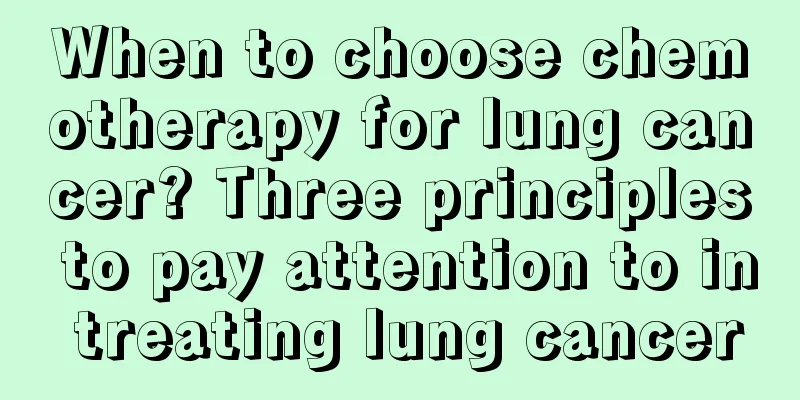Is hepatitis easy to cure? Five misunderstandings about hepatitis treatment

|
Hepatitis is a relatively common liver disease. It is relatively difficult to treat. Patients should not only pay attention to the effects of treatment, but also strengthen good conditioning. Especially in the daily treatment process, never seek medical treatment indiscriminately. Regular treatment methods must be adopted. Once the treatment goes astray, it is easy to aggravate the symptoms of hepatitis and even induce the occurrence of malignant tumors. Myth 1: If the positive index is high, treatment is necessary Many people are found to have high positive hepatitis B virus markers during routine physical examinations, so they become extremely anxious and hope to be treated quickly. In fact, these people are merely asymptomatic carriers of the hepatitis B virus, which does not affect their normal study and work. According to Dr. Yang, 3/4 of hepatitis B virus carriers are in Asia, and the carrier rate among adults in my country is as high as 10%. The most common transmissions are close contact in daily life, blood products, blood transfusions, and mother-to-child transmission. Myth 2: New and expensive drugs are good drugs Many patients believe that only new and expensive drugs can cure serious diseases and that cheap products are not good. Once they learn that a new drug or imported drug has been released, they will try every possible means to try it. There have been many treatments, but with little effect. Most antiviral drugs are imported, and preliminary experiments or clinical studies are conducted abroad. Preliminary research results show that they are effective in treating hepatitis, but the long-term effects are still unknown. Many drugs have not yet been used on a large scale in clinical practice abroad, or their efficacy has not yet been recognized. Western antiviral medicines are effective in treating hepatitis in Europeans and Americans, but when used to treat hepatitis patients in my country, they are often ineffective and show obvious "acclimatization". Myth 3: The goal of treatment is to “turn positive into negative” Many patients believe that the fundamental purpose of treatment is to turn the viral indicators negative, that is, the so-called "big three positives" and "small three positives" all turn negative, and mistakenly believe that only when the viral indicators turn negative can hepatitis be considered cured. This misunderstanding has brought about many problems: first, patients look everywhere for a good prescription to turn the disease negative, but are often disappointed after taking the medicine, or occasionally one or two indicators turn negative, but the good times do not last long and the disease recurs. For some patients, after treatment, "big triple positive" was indeed transformed into "small triple positive". Logically, the condition should have improved, but the opposite was true and the condition further worsened. If this happens, it means that the negative conversion of the above-mentioned virus has brought about adverse consequences. Most of these negative conversions are caused by virus mutations. The forms of virus mutations are diverse, and the consequences of mutations are also quite complicated. Myth 4: Folk remedies can cure serious illnesses The idea of using folk remedies to cure serious illnesses is quite common in my country. When encountering difficult and complicated diseases, there will always be people who will recommend using folk remedies. Most folk remedies come from the folks, and the creators may not all have legal qualifications as practicing physicians. The remedies sold are mostly kept secret, and the composition of the drugs is unknown. It is unknown whether they contain effective drugs for treating hepatitis. The folk remedy has not been reviewed by any drug regulatory department and has no approval number for use. Patients should not use it blindly without knowing the truth. Myth 5: Hepatitis will inevitably develop into cirrhosis Cirrhosis and liver cancer are related to hepatitis, but only a few people will eventually develop liver cancer. This depends to a large extent on the body's immune status, which is closely related to mood and emotions. Therefore, to correctly understand hepatitis B, you must let go of the burden and not seek medical treatment everywhere just to turn the test results negative. During treatment, you should be careful not to overwork, avoid drinking, and maintain an optimistic attitude. |
<<: What are the exercise methods to prevent cervical spondylosis?
>>: What are some chest exercises?
Recommend
What does eye optometry mean
Eye examination requires a medical test of the cu...
How to remove oil stains from clothes
Everyone can have a clean and tidy image, which w...
Brief analysis of the clinical symptoms of pancreatic cancer
As one of the common malignant tumors of the dige...
What is the method of making hydroponic nutrient solution
Due to serious environmental pollution, many area...
Is lemon good for the stomach?
Lemon has a very good appetite-stimulating effect...
What are the symptoms of prostate cancer before death in the late stage
If the symptoms of prostate cancer are not found ...
Can sesame oil treat rhinitis?
Sesame oil is a condiment that we often use in ou...
What is the difference between a chest X-ray and a CT scan?
From a clinical perspective, a chest X-ray is a r...
What are the traditional Chinese medicines for treating bone cancer
In clinical treatment, the treatment of bone canc...
What causes cracks on teeth?
If there are cracks on your teeth, you should pay...
How to prevent and treat liver cancer in daily life? Remember the two early detections, three inspections and four treatments for liver cancer prevention and treatment
“Two Early” improves efficacy: Two Early preventi...
How to use the rice cooker's hot rice function
Many people like to eat rice. When most people st...
Will moisture in the body cause acne?
What should I do if I get acne due to excessive m...
What happens if the physical examination shows thrombocytopenia?
In modern life, people often have regular physica...
Is uterine cancer complicated by effusion serious?
Among gynecological diseases, uterine cancer is a...









